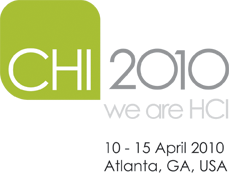CN23: Model-Driven Inquiry: Beyond Ethnography
Quick Facts
Time: Thursday, 15 April 2010, 9:00 to 13:00Units: 2
Organizers: Larry L. Constantine
Benefits
Model-driven approaches are of growing influence owing to the promise of more orderly and manageable processes with enhanced traceability. Model-driven inquiry is an accelerated alternative to contextual inquiry and other ethnographic approaches for user research, field study, and requirements gathering. It is a proven agile, model-driven approach that can streamline and systematize user research by enabling design and usability professionals to shorten and more sharply focus field research to get the greatest benefit from the fewest resources. By drawing on extant knowledge and insight and identifying boundaries between the known and not-known, model-driven inquiry can dramatically reduce the need for extended observation or extensive user research. Although the approach evolved within interaction design practice, it also has potential application in academic research. Participants will learn how to use models and modeling to drive inquiry, how to choose models for leverage in both inquiry and design, and how to formulate focused inquiries and select efficient inquiry techniques. The relationship to and integration with contextual inquiry will be covered.Audience
HCI and interaction design researchers and practitioners; knowledge or experience with contextual inquiry is useful but not required.Origins
New to CHI. Model-driven inquiry, based on exploratory modeling and using techniques from joint essential modeling, has been used extensively in design practice and is taught in the joint Carnegie Mellon/University of Madeira MHCI program. This material in condensed form was presented at User Interface 12, Boston, 2007.Features
- compares and contrasts ethnographic and model-driven approaches
- explores practical implications of basis in ethnography and exploratory modeling
- gives detailed, step-by-step guidance for carrying out model-driven inquiry
- provides introduction to activity-based and task-based models to drive inquiry
- presents techniques for exploratory model generation
- includes formulating inquiries from models and methods from inquiries
- covers refinement and elaboration of exploratory models
- offers framework for integration with contextual inquiry



